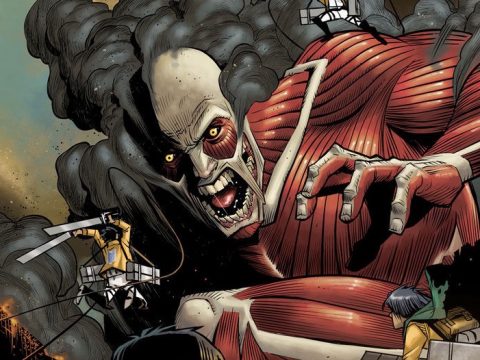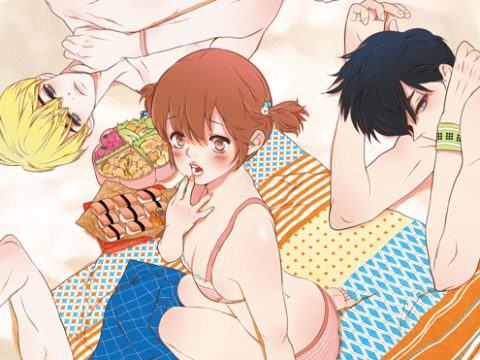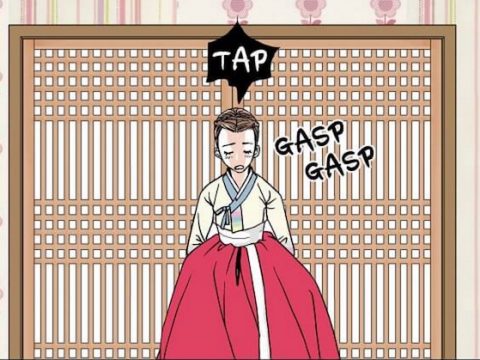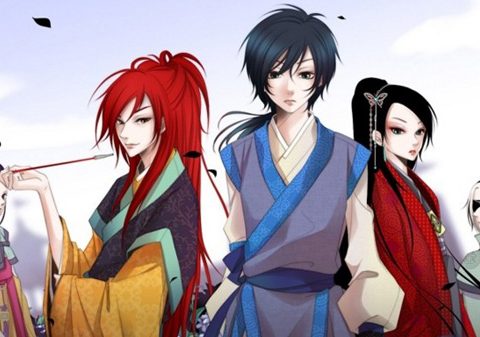Many American manga fans aspire to make their own manga. While at Detroit’s Youmacon convention, I spoke with Fred Gallagher of MegaTokyo fame about how his manga-inspired comic took off and his advice for aspiring mangaka.
“I was actually a fan of manga and anime many years ago,” he said. “I was into it heavily in the 90s, kind of before it became popular in the States and whatnot. I followed a lot of things, like Appleseed by Eclipse Comics. Akira was out at the time. I was following a lot of independent stuff. At the time it was really hard to find things. When the internet started to become a thing, I began to find out more and find resources. We’re spoiled today.”
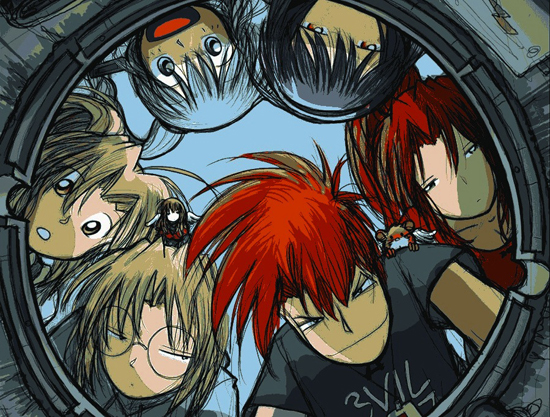
So how did this eventually lead to MegaTokyo?
“I’ve always liked to draw, I’ve always wanted to do comics,” he explained. “Manga influenced me quite a bit in the 90s as I was getting more and more into it. But before the internet was really a thing, doing comics involved printing them or finding a place to sell them. I didn’t think comic book shops would be a place where people would be real interested in manga, per se. So a friend of mine bugged me for a long time to do a webcomic with him. I checked out a bunch of webcomics, and a lot of them were a ‘joke a day’ kind of thing. Some of them had some story stuff going on. I thought, You know what? Maybe I’ll try. We’ll do a couple just to get him to shut up and leave me alone.”
What he decided to try ended up becoming so much more. “There were a lot of jokes, but I also tried to put in more stories,” he said about the beginning. “Over the years, it turned into very much a manga-inspired comic that I’ve been doing for about 14 years.”
Japanese graphic novels get translated into English all the time. However, OEL manga aren’t exactly known for being translated into Japanese. But MegaTokyo has been published in a number of different languages.
“It’s been translated into Japanese, there’s been a German release, there’s been a French release, an Italian release, a Polish release,” Gallagher listed.
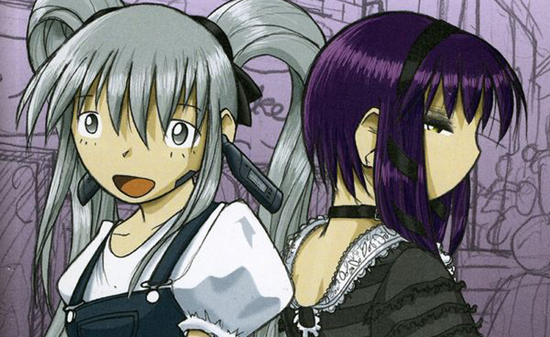
When I brought up the fact I’ve heard American manga fans say they can’t make manga themselves because they’re American, Gallagher shook his head sadly.
“My goal was never specifically to say, ‘I want to get into the manga market,’” he said. “It’s about making something where you can communicate with other people. With comics, you’re using both drawings and words. It’s an artistic medium and there are a lot of ways to do it. My biggest advice is, when you’re making manga, you’re trying to give something that gives the same feel to others that you get from reading someone else’s work. So if you like a manga, you have this inspiration to create something that does the same thing. When people do fanart that’s based on another’s character, they’re sort of latching on to a certain extent. They’re working with some existing feelings. When you’re doing your own stuff, it’s a little harder. The idea is, if there’s something you like about a certain kind of comic, try to create a comic or characters that have the same sort of feel with your own comic and your own characters. What you may find is that you’re able to zero in on something that was only part of a comic you liked. You can create something that’s even more specifically something you like. If you can do that, it’s very rewarding. It takes a lot of effort and can be very frustrating, and a lot of times you feel like you haven’t gotten anything across, but it’s like any type of communication. I can say, ‘This character smiled’ but the way I draw that smile might make some subtle message come across that could give a wealth of meaning that would be very hard for me to describe in words. I tell stories using drawings. Some people are very good at writing. The storytelling for me happens when I draw the characters. I will often do the comics without any real dialogue until afterward.”
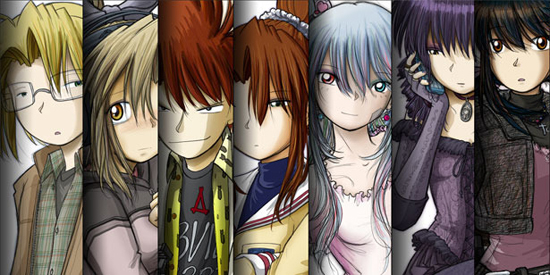
So what advice does he have for aspiring mangaka in terms of publishing and getting their work out there?
“The wonderful thing about the current age is that you don’t have to rely on a gatekeeper, whether it’s a publisher or someone else to decide whether your work is any good or not,” he said. “With the internet, you can make your own work, you can post it, you can share it, you can become part of communities. I have readers all over the world, and I did before I was ever published. It’s about reaching people. It’s not whether you have a publisher or not. A publisher can help you reach a lot of people, but in the end what matters is being able to reach those people. I firmly believe that if you do good enough work and you do a lot of work, people will find it. I know it feels very frustrating when you’re starting out. It feels like you’re doing a lot of work and never getting anywhere. You’re not seeing any positive vibes or people reading it or anything. But over time, you learn by doing. You get better the more you do. The best thing to do with comics is just make them. You do have to get used to people telling you they suck or something like that. But you know what? Who cares? You have to have a little bit of a thick skin and appreciate the praise and take the criticism with a grain of salt. A lot of times the criticism is coming from people who have never made a thing. With the internet, people can affect the lives of others in two ways. You can either be a positive influence, create something, add something. Or you can bash at them and tear them down and affect their lives that way. I prefer the idea of making something, adding something, and you can do that.”
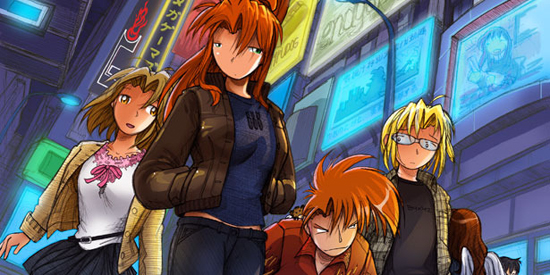
Besides working as a positive force on the internet, he’s keeping very busy with his artistic career. “I have a visual novel I’ve been working on for quite a while now that’s coming along. With MegaTokyo itself, I’m just finishing up chapter eleven, which is about halfway through my next book, volume 7. I know it’s been a long time coming. This last chapter took a long time to produce, but during that time my son was born, my wife had lymphoma and got through that, and I had heart surgery. We’re all still here, we’re all still kicking and we’re actually all doing great. Readers are amazingly patient and it shocks me how many people are still happy with what I’m doing.”
If you’re interested in making your own manga, or would just like art tips, he’s happy to help. “I like to share what I do and how I do it: I actually have a Twitch channel, Fredrin, where you can watch me do the drawings live.”


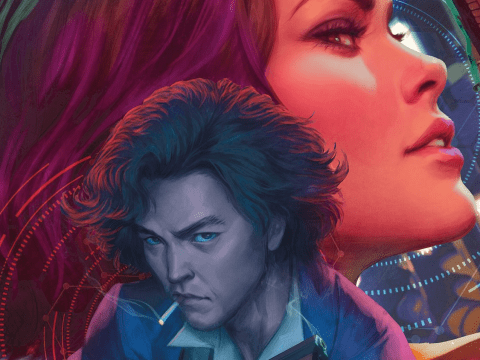
![The Reflection’s Hiroshi Nagahama Shares His Love of Superheroes [Interview] The Reflection’s Hiroshi Nagahama Shares His Love of Superheroes [Interview]](https://otakuusamagazine.com/wp-content/uploads/2017/08/nagahamainterview-480x360.jpg)
